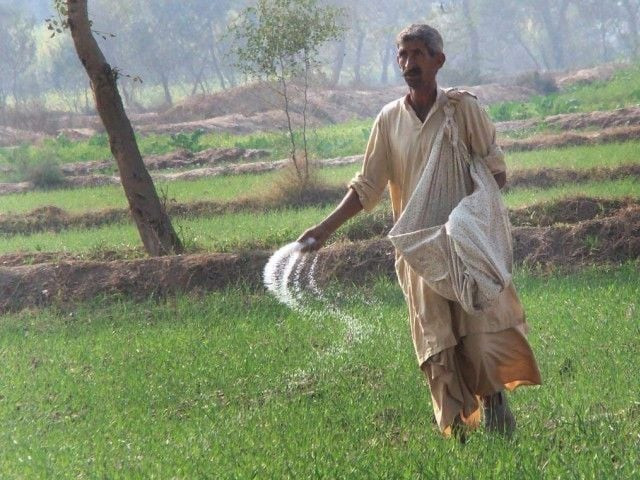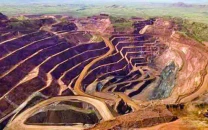Farmers demand lower urea prices
Growers urge govt intervention as fertiliser costs soar compared to India

Small and progressive growers have called for reducing fertiliser rates to boost crop yields and agricultural growth.
Practices of hereditary agriculture have prevailed across the country for centuries, but crop breeding remains a complex challenge. Farmers urged the government to play its role in reducing prices and regulating them.
They said that urea and DAP prices should not exceed Rs2,000 and Rs5,000-Rs6,000 per 50 kg bag, respectively. In Pakistan, urea costs Rs4,400 per 50 kg bag, while Indian growers get the same quantity for Rs300. If Rs4 (due to the depreciation of the Pakistani rupee) is multiplied by 300, it equals Rs1,200. Pakistani growers should be able to purchase urea at Rs1,200 per bag, yet it is being sold for at least Rs4,400. Similarly, DAP is priced at Rs1,200 per 50 kg bag in India and should cost Rs4,800 in Pakistan, but it is currently being sold for Rs12,500 per 50 kg bag.
This makes DAP over 300% more expensive in Pakistan than in India. Pakistani growers face lower yields compared to their Indian counterparts while paying higher input costs and failing to secure fair output prices. Farmers are falling behind each year due to exploitation in both input and output costs. Input costs include fertilisers, seeds, pesticides, and other essentials. There is no justification for the prices of Rs4,400 and Rs12,500 per bag for urea and DAP, respectively, in Pakistan. Urea is essential for crop growth. If growers do not apply urea and DAP, crop yields will decrease by 80% and 30-40%, respectively.
When it comes to Pakistan's fertiliser industry, Fauji Fertiliser Company Limited and Engro Fertilisers Limited produce 90% of the country's urea, while Fatima Fertiliser Company Limited, Pak-Arab Fertiliser Limited (PAFL), and others fulfil the remaining 10% of local demand. Around 70% of DAP is imported, while 30% is produced locally by Fauji Fertiliser Company Limited. DAP must be imported as per local demand for each of the two crop seasons while safeguarding precious foreign exchange reserves.
Sustainable Agriculture Expert and Sindh Chamber of Agriculture (SCA) Senior Vice President Nabi Bux Sathio stated that, for the first time starting from October 15, Fauji Fertiliser Company Limited (FFCL) has set up outlets in Sindh's districts, and Engro Fertilisers Limited has launched an online application where growers can register and purchase fertilisers at company-set rates.
The real test for both companies will be during the Kharif season when fertiliser demand is high, unlike the lower demand in the Rabi season. In terms of exports and industries, the Kharif season, which runs from March 15 to October 14, includes crops such as cotton, paddy, oilseed, maize, onion, and chilies. The Rabi season, from October 15 to March 14, includes crops such as wheat, sugarcane, and oilseed crops.
Offering such services is a positive initiative. If companies provide fertilisers on a four-month loan at the central bank's interest rate, it would be a significant support for the agriculture sector. Once the crops are harvested after four months, growers will be able to make payments.
Growers already spend money on land preparation, labour costs, diesel for farm tractors, and seed purchases. They then require multiple fertiliser applications to achieve high yields, but they often lack sufficient funds. Due to financial constraints, farmers are frequently overcharged by fertiliser dealers for delayed payments, as they typically pay for fertilisers only after selling their crops.
Another progressive grower, Jawaid Junejo, along with several small farmers, also demanded fair fertiliser prices. On top of that, despite gas supply cuts to industrial and domestic consumers, fertiliser companies receive full gas supplies at subsidised rates. Instead of lowering prices, they set high rates on their own.



















COMMENTS
Comments are moderated and generally will be posted if they are on-topic and not abusive.
For more information, please see our Comments FAQ